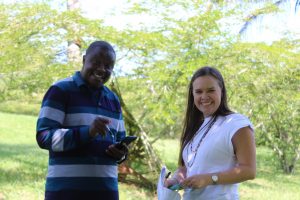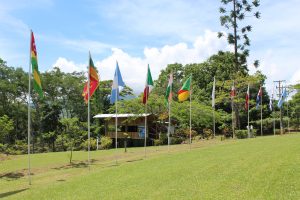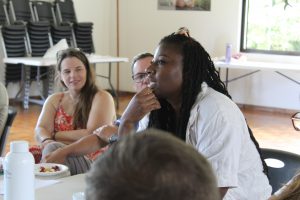Understanding Diversity, Equity, and Inclusion: Words Matter
I was recently in a DEI class where the instructor spent a considerable amount of time reviewing key terms. In 2023, surely a roomful of educated professionals could be expected to already know the meanings of words like race, culture, and ethnicity. But we quickly realized that we all had different definitions! Someone said that race is a man-made social construct, and shouldn’t even be discussed, while another waxed eloquent about how diversity work could not be understood without understanding race and its impact on modern society. Language is powerful, and having a common understanding of words is crucial. But at the same time, language evolves.
For example, in the US, there was once a time when the respectful terms for people of African descent were Negro or colored. Now, those terms are considered outdated and racist, while Black or African American are now the accepted terms.
A similar trend exists for most ethnic minorities. Many terms hearken back to the days of slavery, or even the colonial period, when groups were arbitrarily lumped together based on a particular phenotype, but they also implied negative stereotypes, characteristics, and traits. When these terms are linked to a history of oppression, it makes sense for the group to reject terms that they feel do not accurately reflect their culture and identity.
Furthermore, terms change as groups’ goals change. I remember when our school district was hiring “diversity specialists” because diversity was the goal. For many well-intentioned, predominantly white institutions (PWIs), that was the goal. But diversity initiatives that were consumed with meeting quantitative, numerical goals failed to meet the challenges of our society.
I remember the episode of the NBC TV show Superstore where one of the store’s employees, Garrett, an African American man in a wheelchair, spent his entire workday avoiding the company photographer. He didn’t want to be the token “double minority” on the cover of his company magazine. Garrett knew that his organization just wanted a face, not a voice. People from marginalized groups don’t want to be decoration for PWIs. We want a seat- and a voice- at the table. We don’t want to just be there, but to feel that we belong and that our presence isn’t just being tolerated (another outdated term in the DEI movement that has since been pretty much retired!).
Each name change results because we want something different, we are aiming higher, we are asking different questions, and requiring different answers.
Ultimately, we want justice, the demolishing of systemic barriers. Which leads us to one of the newest terms in the field of DEI: JEDI. Many have taken to using the term JEDI (Justice, Equity, Diversity, and Inclusion), emphasizing the struggle for justice, and also leaning into the imagery of the Star Wars heroes. If you’re a fan of the franchise, that might seem harmless, but others have argued that our fight for racial and social justice should not be linked to a science fiction world that has long catered to middle class white men.
Again, words matter.
We’ve all seen and heard people throw their hands in the air or laugh at the newest term, like LGBTQIA or Latinx.
They complain, “We don’t even know what to call them!”
Or, “Everybody is just so sensitive nowadays.”
Words matter, but so do our attitudes. Not only is that attitude incredibly unhelpful, it’s also just a smokescreen. It’s an unwillingness to take marginalized groups’ needs and experiences seriously. It’s saying that you don’t care enough to use the correct term.
It’s okay if you don’t understand the name change at first. Ask questions, and be open to answers from lots of different people and lots of different perspectives. Each movement for racial and social justice is made up of a myriad of individuals, each with their own unique perspectives, who may or may not feel that the popular terms reflect them and their experiences. Historically, who gets to coin the terms have been professionals, academics, and those with access to media, etc. who are not always the ones who are most impacted by the terms and their usage.
At the end of the day, groups want justice. To be treated humanely and fairly. To not experience undue burdens when accessing systems in society. But sometimes, the first step in the road to justice is being called by the correct name.
Next Steps
If you’d like to go deeper into the world of DEI, join us for Diversity, Equity and Inclusion in the Workplace: A Global Approach, or Intercultural Communication and Collaboration, offered by the UPEACE Centre for Executive Education.













